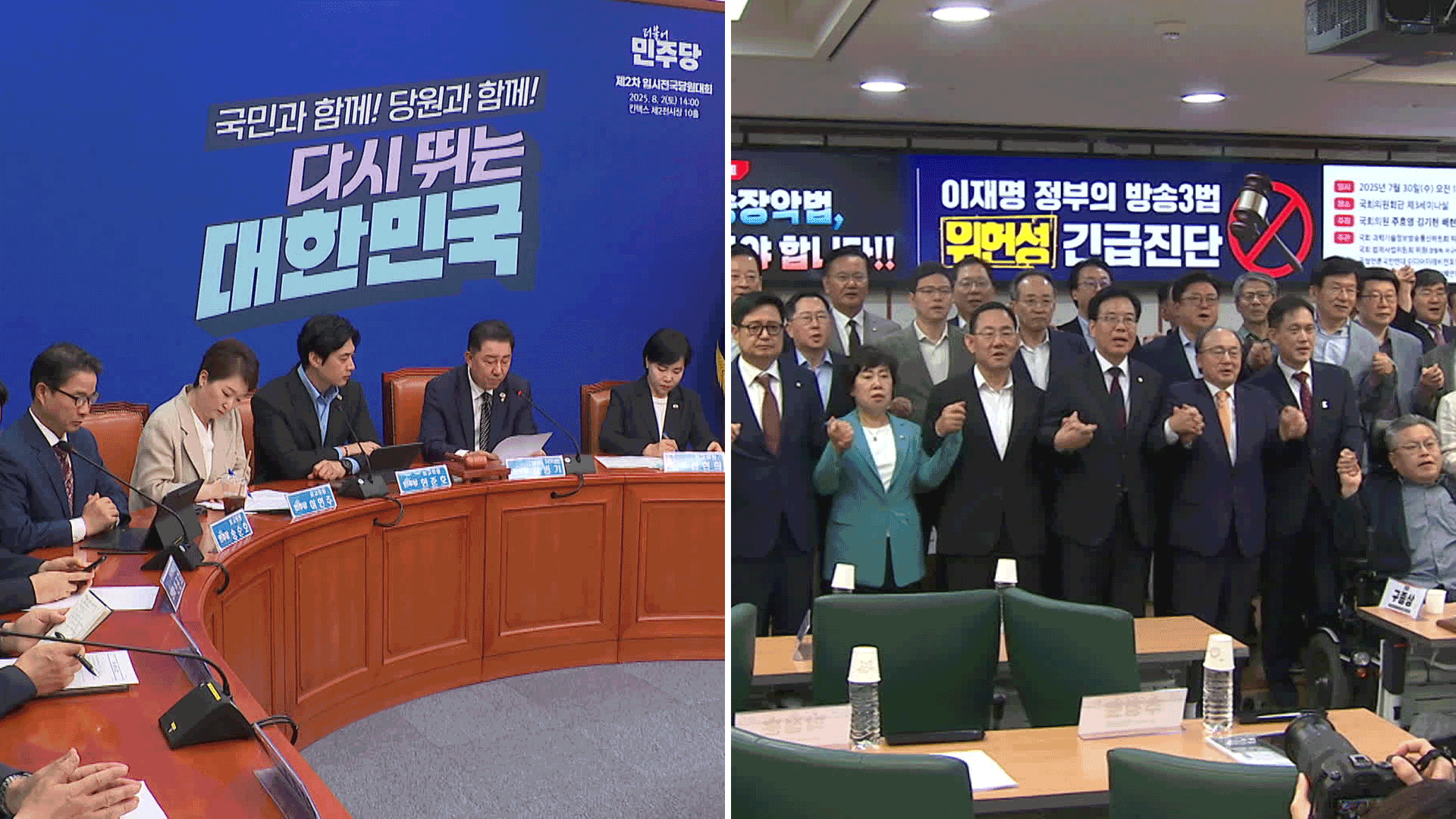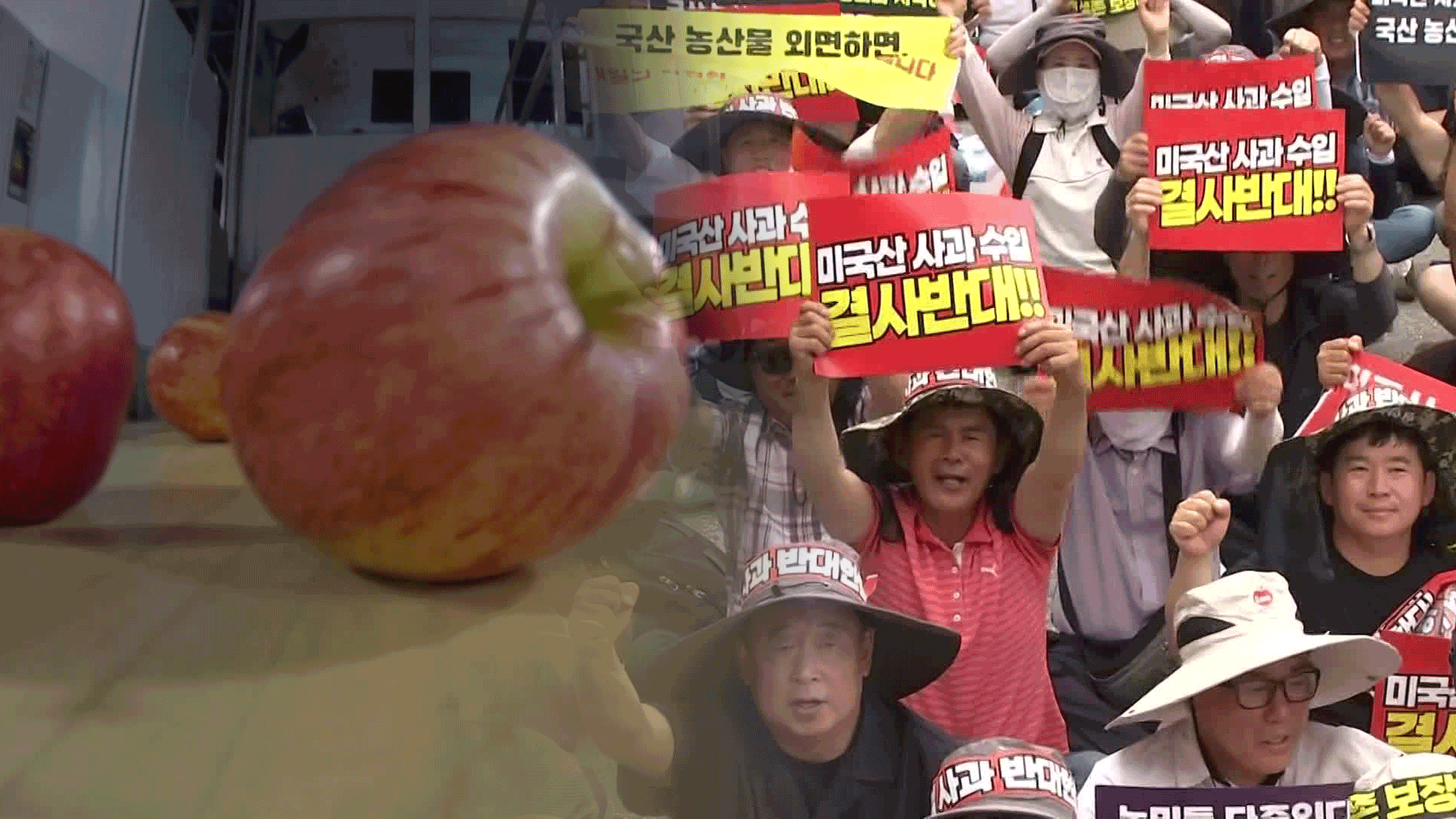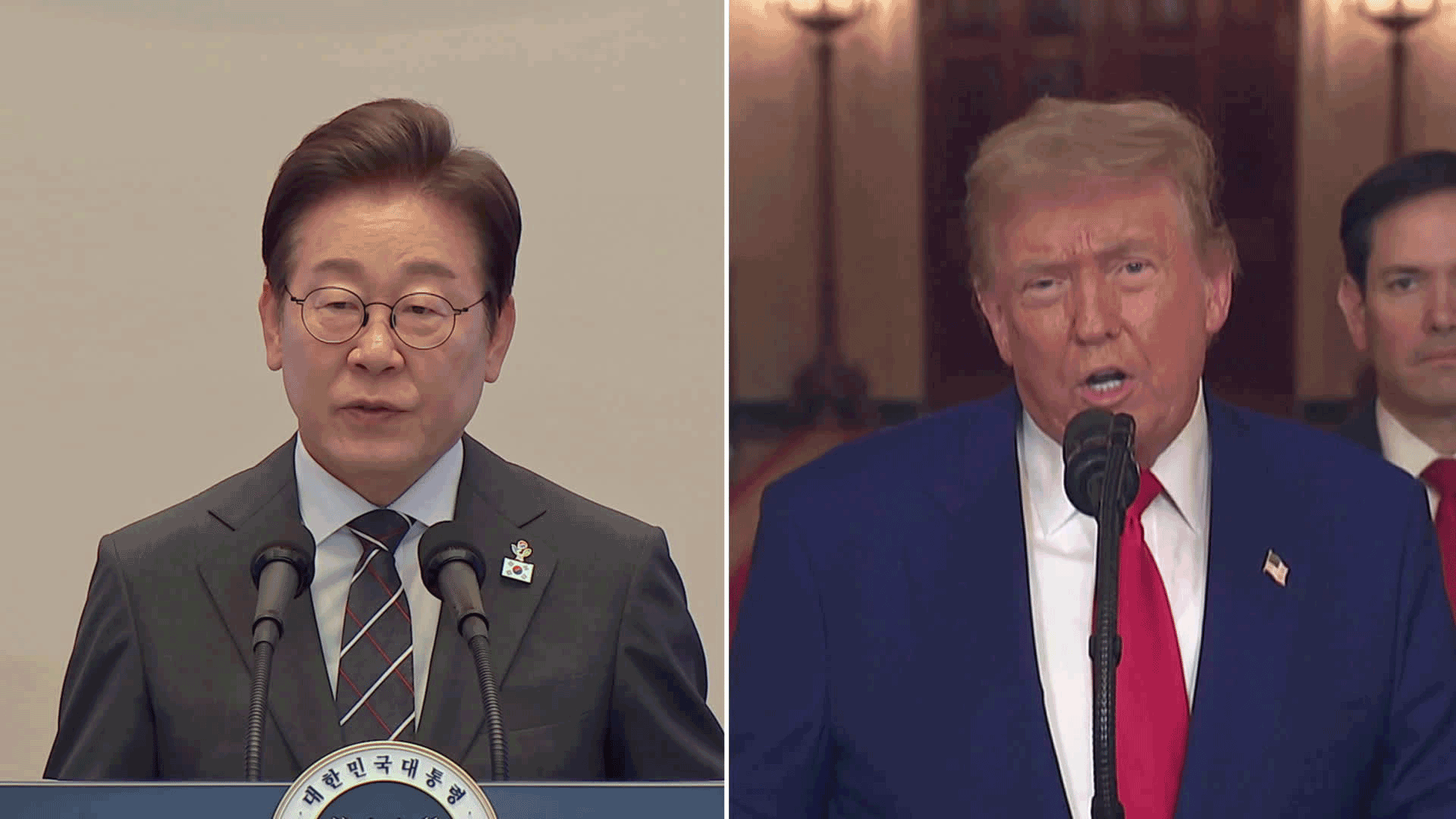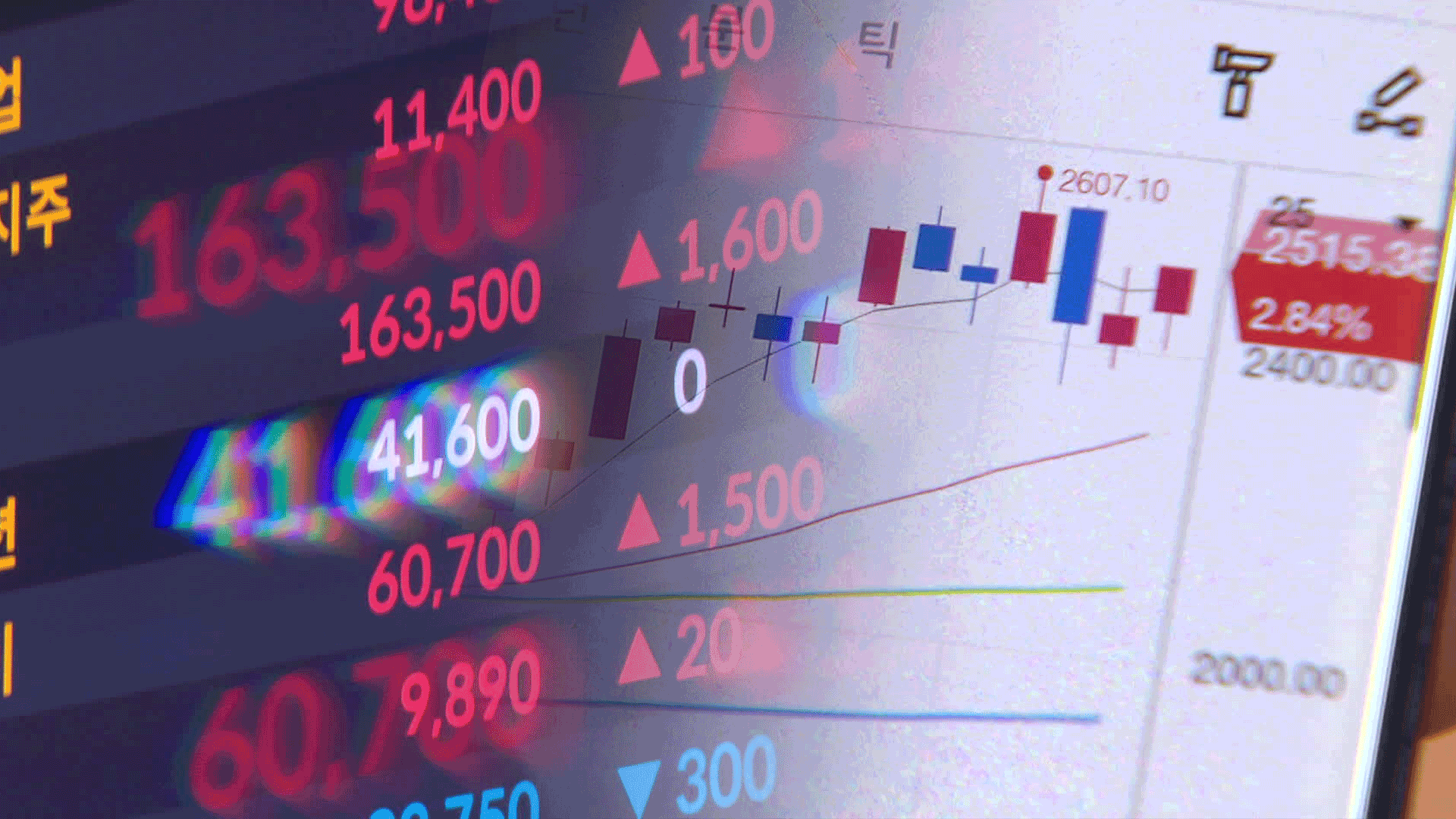[Anchor]
The Democratic Party has announced that it will process key bills, including the three broadcasting bills, at the National Assembly plenary session scheduled for next month on the 4th.
The People Power Party has stated that if the bills are pushed through without agreement, they will engage in unlimited debate and filibuster.
Reporter Park Young-min has the details.
[Report]
The contentious bills that both parties are sharply opposing include the three broadcasting bills, the Yellow Envelope Act, and the second amendment to the Commercial Act.
The Democratic Party has reaffirmed its stance to process these bills during this extraordinary session of the National Assembly.
[Park Sang-hyuk/Democratic Party Spokesperson: "We will do our best to accelerate reform and livelihood legislation ahead of the plenary session scheduled for August 4."]
The People Power Party has proposed negotiations with the Democratic Party's floor leader, stating that they will resort to a filibuster if the contentious bills are pushed through.
[Song Eon-seog/Chairman of the People Power Party Emergency Response Committee and Floor Leader: "If negotiations fail, the only option left is to engage in a filibuster."]
If the People Power Party proceeds with a filibuster, it will take at least 24 hours to process a single bill.
Considering that the extraordinary session of the National Assembly is scheduled to end on the 5th of next month, only 1 to 2 of the contentious bills can be processed at most.
The People Power Party is particularly focused on blocking the processing of the three broadcasting bills.
The three broadcasting bills require the public broadcasting board to be newly expanded within three months of the law's enactment and to form a recommendation committee of over 100 members to select a new president.
The People Power Party criticized this as an attempt to strengthen political bias by replacing the management and board of public broadcasting.
[Lee In-ho/Professor at Chung-Ang University Law School: "It is about giving the authority of broadcasting to general social forces, or to the media union, or to its employees. This is unacceptable."]
The Democratic Party argues that the three broadcasting bills have already passed the standing committee among the contentious bills and that they aim to return broadcasting to the people, thus prioritizing their processing.
[Kim Hyun/Democratic Party Member/KBS 1 Radio 'Intensive Current Affairs': "The people will directly select the candidates for the broadcasting company president. That is a form of public participation."]
Both parties have issued emergency standby orders to their members ahead of next week's plenary session.
Tensions are rising over the processing of contentious bills, including the announcement of the extraordinary session of the National Assembly in August.
This is KBS News, Park Young-min.
The Democratic Party has announced that it will process key bills, including the three broadcasting bills, at the National Assembly plenary session scheduled for next month on the 4th.
The People Power Party has stated that if the bills are pushed through without agreement, they will engage in unlimited debate and filibuster.
Reporter Park Young-min has the details.
[Report]
The contentious bills that both parties are sharply opposing include the three broadcasting bills, the Yellow Envelope Act, and the second amendment to the Commercial Act.
The Democratic Party has reaffirmed its stance to process these bills during this extraordinary session of the National Assembly.
[Park Sang-hyuk/Democratic Party Spokesperson: "We will do our best to accelerate reform and livelihood legislation ahead of the plenary session scheduled for August 4."]
The People Power Party has proposed negotiations with the Democratic Party's floor leader, stating that they will resort to a filibuster if the contentious bills are pushed through.
[Song Eon-seog/Chairman of the People Power Party Emergency Response Committee and Floor Leader: "If negotiations fail, the only option left is to engage in a filibuster."]
If the People Power Party proceeds with a filibuster, it will take at least 24 hours to process a single bill.
Considering that the extraordinary session of the National Assembly is scheduled to end on the 5th of next month, only 1 to 2 of the contentious bills can be processed at most.
The People Power Party is particularly focused on blocking the processing of the three broadcasting bills.
The three broadcasting bills require the public broadcasting board to be newly expanded within three months of the law's enactment and to form a recommendation committee of over 100 members to select a new president.
The People Power Party criticized this as an attempt to strengthen political bias by replacing the management and board of public broadcasting.
[Lee In-ho/Professor at Chung-Ang University Law School: "It is about giving the authority of broadcasting to general social forces, or to the media union, or to its employees. This is unacceptable."]
The Democratic Party argues that the three broadcasting bills have already passed the standing committee among the contentious bills and that they aim to return broadcasting to the people, thus prioritizing their processing.
[Kim Hyun/Democratic Party Member/KBS 1 Radio 'Intensive Current Affairs': "The people will directly select the candidates for the broadcasting company president. That is a form of public participation."]
Both parties have issued emergency standby orders to their members ahead of next week's plenary session.
Tensions are rising over the processing of contentious bills, including the announcement of the extraordinary session of the National Assembly in August.
This is KBS News, Park Young-min.
■ 제보하기
▷ 카카오톡 : 'KBS제보' 검색, 채널 추가
▷ 전화 : 02-781-1234, 4444
▷ 이메일 : kbs1234@kbs.co.kr
▷ 유튜브, 네이버, 카카오에서도 KBS뉴스를 구독해주세요!
- DP to push ahead with key bills
-
- 입력 2025-07-31 02:58:54

[Anchor]
The Democratic Party has announced that it will process key bills, including the three broadcasting bills, at the National Assembly plenary session scheduled for next month on the 4th.
The People Power Party has stated that if the bills are pushed through without agreement, they will engage in unlimited debate and filibuster.
Reporter Park Young-min has the details.
[Report]
The contentious bills that both parties are sharply opposing include the three broadcasting bills, the Yellow Envelope Act, and the second amendment to the Commercial Act.
The Democratic Party has reaffirmed its stance to process these bills during this extraordinary session of the National Assembly.
[Park Sang-hyuk/Democratic Party Spokesperson: "We will do our best to accelerate reform and livelihood legislation ahead of the plenary session scheduled for August 4."]
The People Power Party has proposed negotiations with the Democratic Party's floor leader, stating that they will resort to a filibuster if the contentious bills are pushed through.
[Song Eon-seog/Chairman of the People Power Party Emergency Response Committee and Floor Leader: "If negotiations fail, the only option left is to engage in a filibuster."]
If the People Power Party proceeds with a filibuster, it will take at least 24 hours to process a single bill.
Considering that the extraordinary session of the National Assembly is scheduled to end on the 5th of next month, only 1 to 2 of the contentious bills can be processed at most.
The People Power Party is particularly focused on blocking the processing of the three broadcasting bills.
The three broadcasting bills require the public broadcasting board to be newly expanded within three months of the law's enactment and to form a recommendation committee of over 100 members to select a new president.
The People Power Party criticized this as an attempt to strengthen political bias by replacing the management and board of public broadcasting.
[Lee In-ho/Professor at Chung-Ang University Law School: "It is about giving the authority of broadcasting to general social forces, or to the media union, or to its employees. This is unacceptable."]
The Democratic Party argues that the three broadcasting bills have already passed the standing committee among the contentious bills and that they aim to return broadcasting to the people, thus prioritizing their processing.
[Kim Hyun/Democratic Party Member/KBS 1 Radio 'Intensive Current Affairs': "The people will directly select the candidates for the broadcasting company president. That is a form of public participation."]
Both parties have issued emergency standby orders to their members ahead of next week's plenary session.
Tensions are rising over the processing of contentious bills, including the announcement of the extraordinary session of the National Assembly in August.
This is KBS News, Park Young-min.
The Democratic Party has announced that it will process key bills, including the three broadcasting bills, at the National Assembly plenary session scheduled for next month on the 4th.
The People Power Party has stated that if the bills are pushed through without agreement, they will engage in unlimited debate and filibuster.
Reporter Park Young-min has the details.
[Report]
The contentious bills that both parties are sharply opposing include the three broadcasting bills, the Yellow Envelope Act, and the second amendment to the Commercial Act.
The Democratic Party has reaffirmed its stance to process these bills during this extraordinary session of the National Assembly.
[Park Sang-hyuk/Democratic Party Spokesperson: "We will do our best to accelerate reform and livelihood legislation ahead of the plenary session scheduled for August 4."]
The People Power Party has proposed negotiations with the Democratic Party's floor leader, stating that they will resort to a filibuster if the contentious bills are pushed through.
[Song Eon-seog/Chairman of the People Power Party Emergency Response Committee and Floor Leader: "If negotiations fail, the only option left is to engage in a filibuster."]
If the People Power Party proceeds with a filibuster, it will take at least 24 hours to process a single bill.
Considering that the extraordinary session of the National Assembly is scheduled to end on the 5th of next month, only 1 to 2 of the contentious bills can be processed at most.
The People Power Party is particularly focused on blocking the processing of the three broadcasting bills.
The three broadcasting bills require the public broadcasting board to be newly expanded within three months of the law's enactment and to form a recommendation committee of over 100 members to select a new president.
The People Power Party criticized this as an attempt to strengthen political bias by replacing the management and board of public broadcasting.
[Lee In-ho/Professor at Chung-Ang University Law School: "It is about giving the authority of broadcasting to general social forces, or to the media union, or to its employees. This is unacceptable."]
The Democratic Party argues that the three broadcasting bills have already passed the standing committee among the contentious bills and that they aim to return broadcasting to the people, thus prioritizing their processing.
[Kim Hyun/Democratic Party Member/KBS 1 Radio 'Intensive Current Affairs': "The people will directly select the candidates for the broadcasting company president. That is a form of public participation."]
Both parties have issued emergency standby orders to their members ahead of next week's plenary session.
Tensions are rising over the processing of contentious bills, including the announcement of the extraordinary session of the National Assembly in August.
This is KBS News, Park Young-min.
-
-

박영민 기자 youngmin@kbs.co.kr
박영민 기자의 기사 모음
-
이 기사가 좋으셨다면
-
좋아요
0
-
응원해요
0
-
후속 원해요
0















이 기사에 대한 의견을 남겨주세요.